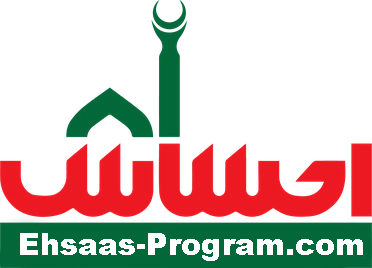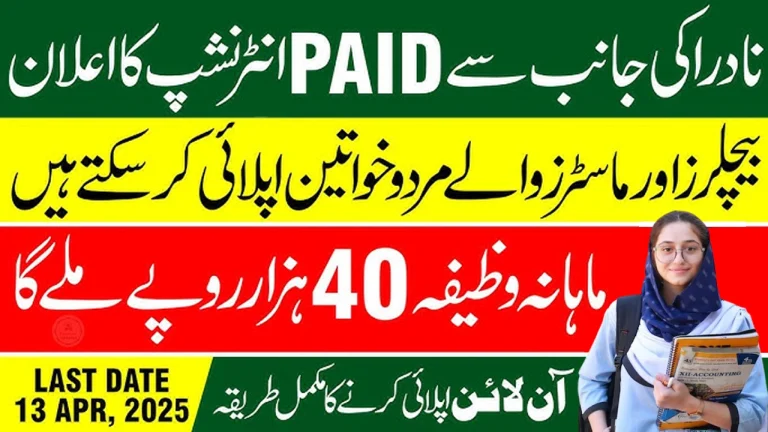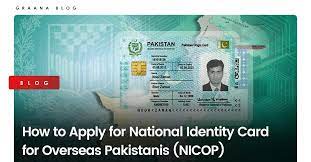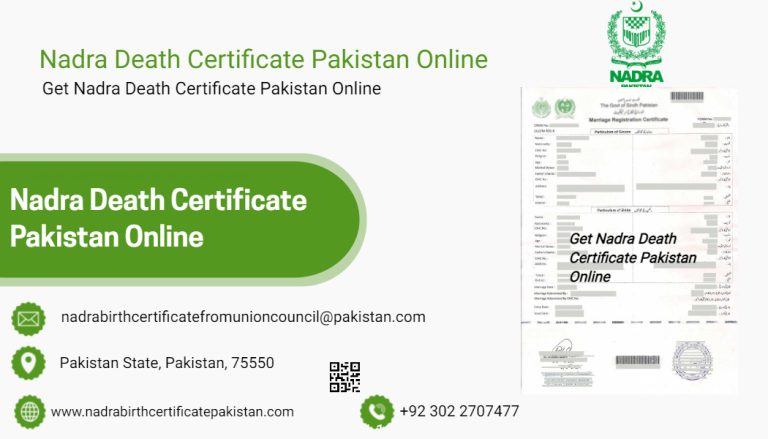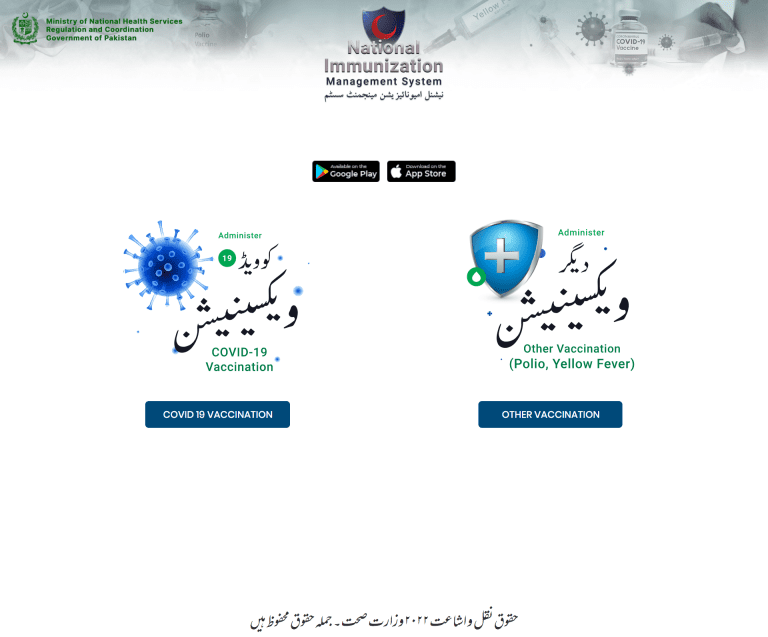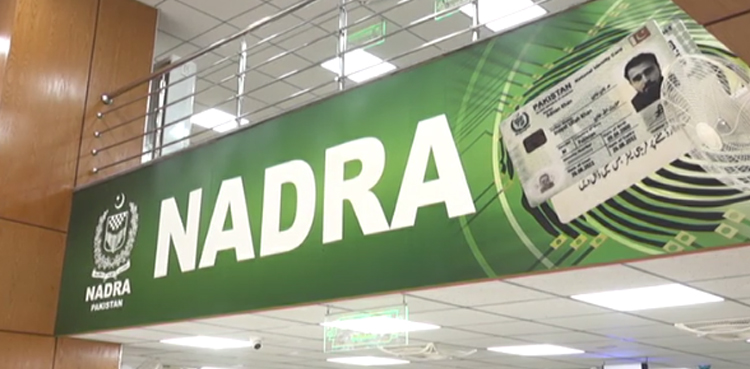
When it comes to managing identity records in Pakistan, the term NRC often comes up. But what does NRC mean exactly? NRC stands for NADRA Registration Centre, a crucial facility operated by NADRA (National Database and Registration Authority) that serves as the central point for identity documentation services across Pakistan.
Need to apply for a CNIC, NICOP, or FRC? Whether you’re living in Pakistan or abroad, NADRA (National Database and Registration Authority) has made identity registration easier than ever. With hundreds of in-person registration centers, online services through the Pak-Identity portal, and even mobile registration teams, getting your national documents is now simple, fast, and convenient.
NADRA Registration Centre
In this comprehensive guide, we’ll explore everything you need to know about NADRA Registration Centers (NRCs)—what they do, why they matter, how to find one, and what services they offer.
Whether you’re applying for a CNIC, NICOP, FRC, or any other identity document, NADRA has made the process simple and accessible. From in-person visits to online applications via the Pak-Identity portal, you can get your documents from anywhere—in Pakistan or abroad.

What Is NRC in NADRA?
NRC stands for NADRA Registration Centre. It is an official facility where citizens can go to register for and update their national identity records. These centres are operated by NADRA, the government body responsible for maintaining a centralized database of Pakistani citizens.
Key Function: NRCs are set up to register individuals into NADRA’s national database, issue identity documents, and provide biometric verification.
Requirements for Visiting a NADRA Registration Centre
When visiting an NRC, you must carry:
-
Original CNIC or B-Form (for renewals or modifications)
-
Supporting documents (birth certificate, school certificate, passport, etc.)
-
Proof of address and relationship (for FRC or NICOP)
- For children: Parents’ CNICs and birth certificates are required.
Services Offered at NADRA Registration Centres
The NADRA Registration Centres (NRCs) in Pakistan serve as the foundational hubs for all citizen identity-related services. Managed by the National Database and Registration Authority (NADRA), these centres play a critical role in maintaining the accuracy, integrity, and accessibility of national identity data. Whether you are applying for your first identity card, updating your family record, or seeking documentation for overseas use, NRCs are the official point of service.
Below is an explanation of the core services provided at NADRA Registration Centres:
1. Issuance of Computerised National Identity Card (CNIC)
One of the primary services offered at any NRC is the issuance of the Computerized National Identity Card (CNIC). This card serves as the official identification for all Pakistani citizens aged 18 and above. The CNIC is mandatory for voting, applying for jobs, opening a bank account, buying property, and accessing government services.
Applicants are required to present documentary evidence such as a birth certificate, B-form, and parent’s CNICs. Biometric data including fingerprints and photographs are also captured at the centre. Once processed, the CNIC is printed and delivered to the applicant’s home or can be collected from the centre.
2. Smart National Identity Card (SNIC)
In addition to standard CNICs, NRCs offer Smart National Identity Cards (SNICs), which are embedded with a chip and enhanced with advanced security features. These cards are compatible with modern digital infrastructure and are often required for international travel, financial transactions, and e-government services.
Applicants for a smart ID card follow a similar process to CNIC issuance, but the fees and delivery timeframes may differ. The SNIC also integrates more secure biometric encryption, which provides an additional layer of identity verification.
3. Juvenile Registration Certificate (Child Registration or B-Form)
Parents can register their children under the age of 18 by applying for a Child Registration Certificate (CRC), commonly known as the B-Form. This document is essential for school admissions, passport applications, and other civic services. To obtain a CRC, both parents must be registered with NADRA and provide supporting documents such as the child’s birth certificate and vaccination record.
This registration process allows the child to be included in NADRA’s family tree database, ensuring long-term access to educational, health, and social welfare systems.
4. Family Registration Certificate (FRC)
NADRA also issues the Family Registration Certificate (FRC), which is used to verify and document familial relationships. The FRC contains details of a family unit based on records maintained by NADRA, including names, CNIC numbers, and relationships.
The FRC is typically required for visa applications, overseas employment, university admissions, and official embassy documentation. It can be obtained from the nearest NRC or via the NADRA Pak-ID online portal, provided all family members are already registered.
Also Read: NADRA Family Registration Certificate (FRC)
5. National Identity Card for Overseas Pakistanis (NICOP)
For Pakistani citizens living abroad, NRCs offer the National Identity Card for Overseas Pakistanis (NICOP). This card functions as a dual-nationality recognition tool and enables overseas Pakistanis to enter Pakistan without a visa. It also facilitates investment in Pakistan, the ability to own property, and access to various government services.
Applicants must provide proof of residency abroad, such as a foreign passport, visa, or work permit, along with their Pakistani documents. The NICOP can be applied for both at NRCs in Pakistan and through overseas NADRA missions.
6. Pakistan Origin Card (POC)
NRCs issue the Pakistan Origin Card (POC) to foreign nationals of Pakistani descent who wish to retain a legal connection with Pakistan. The POC provides visa-free entry to Pakistan, permission to buy property, and access to banking services.
The POC is ideal for individuals who have renounced Pakistani citizenship but still maintain economic, cultural, or familial ties to the country. Applicants are required to submit foreign passports, evidence of Pakistani origin, and relevant supporting documents.
7. Modification and Update of Identity Records
Another vital function of NRCs is facilitating the modification of existing identity records. This includes changes to names, dates of birth, gender, marital status, address, or photographs. Such updates are necessary when personal circumstances change or when incorrect data is discovered in NADRA’s database.
Applicants are required to submit original documentation supporting their request—such as marriage certificates, divorce decrees, educational records, or court orders. A thorough verification process is followed, including the collection of updated biometric data.
8. Biometric Verification Services
Biometric verification is a standard component of identity registration and is conducted during most NRC services. This involves capturing thumb impressions, facial images, iris scans, and digital signatures. These biometric markers are stored in NADRA’s secure servers and used to authenticate the identity of citizens during service delivery.
Biometric verification is also used for SIM card registration, financial inclusion programs, Benazir Income Support Program (BISP) verifications, and digital banking services.
9. Death Registration and Certificates
In the event of a citizen’s death, family members can visit an NRC to obtain an official death certificate. This registration is crucial for updating the national database and for legal procedures such as inheritance claims, property transfers, and pension processing.
To complete this process, the applicant must provide the deceased person’s CNIC, medical death certificate, and proof of relationship.
You can get more details from How to Get a Death Certificate with NADRA in Pakistan
10. Duplicate Identity Card Issuance
If a citizen’s CNIC is lost, stolen, or damaged, they can apply for a duplicate identity card at any NRC. This process requires the presentation of a police report or affidavit confirming the loss, and the applicant must go through the verification process again to ensure data accuracy.
The duplicate card is typically issued within a few working days and can be delivered to the applicant’s home address.
How to Locate a NADRA Registration Centre (NRC) in Pakistan
Finding a nearby NADRA Registration Centre (NRC) is a simple yet important step for anyone needing to apply for a CNIC, update personal records, or access other identity-related services. NADRA has made it convenient for citizens to locate the nearest NRC through multiple channels, ensuring accessibility for all, whether online or via direct contact.
Below are the methods available for locating a NADRA Registration Centre in your area:
1. Through the Official NADRA Website
The most reliable method for locating a NADRA Registration Centre is by visiting the official NADRA website at www.nadra.gov.pk. This website features a dedicated tool that allows users to search for NRCs based on geographical location and service type.
To use this feature:
-
Go to https://www.nadra.gov.pk
-
Navigate to the “Locate NRC” or “NADRA Centres” section
-
Select your Province, City or District
-
Choose the type of registration centre, such as:
-
Normal NRC for standard services
-
Executive NRC for fast-track premium services
-
Mobile Registration Van (MRV) if you’re looking for a centre that visits remote areas or specific regions
-
-
The search results will display a list of all nearby NRCs, including their addresses, contact numbers, and operating hours
This tool is especially helpful for users who need location-specific information and want to confirm service availability before visiting in person.
2. Using the Pak-ID Online Portal
NADRA also offers the Pak-ID Online Portal, a digital platform designed to streamline identity-related services, including locating NRCs and scheduling appointments. This platform is ideal for tech-savvy users who prefer a remote, self-service process.
To use the Pak-ID portal:
-
Visit the Pak-ID portal
-
Register for an account or log in using your credentials
-
Once logged in, navigate to the service you require, such as new CNIC application, NICOP, or record updates
-
During the application process, the system will guide you in selecting your preferred NRC location based on proximity and service category
The Pak-ID portal is optimized for desktop and mobile devices, ensuring that users can manage their identity-related needs conveniently from home or on the go.
3. Contacting the NADRA Helpline
For individuals who prefer direct communication or need assistance with locating a centre, NADRA provides a dedicated helpline service. This is especially useful for those without internet access or those who need immediate clarification.
To use the helpline:
-
Dial 1777 from any mobile phone.
-
For general inquiries and NRC-related support, you can contact NADRA’s customer care at their national helpline https://www.nadra.gov.pk/contact-us/
-
Provide the customer service agent with your current location, city, or area, and they will help identify the nearest NADRA Registration Centre and share relevant information such as centre type, address, and operational timings
The helpline service is staffed with trained representatives who can also assist with tracking application status, understanding documentation requirements, and resolving technical or record-related issues.
Types of NADRA Registration Centres (NRCs) in Pakistan
To effectively serve Pakistan’s diverse population, the National Database and Registration Authority (NADRA) operates various types of Registration Centres (NRCs) tailored to meet specific regional and demographic needs. These centres are strategically distributed across the country to ensure accessibility and efficiency in providing identity-related services.
1. Normal NRCs
Normal NRCs are standard registration centres located in cities and towns throughout Pakistan. They offer essential services such as the issuance and renewal of Computerized National Identity Cards (CNICs), Child Registration Certificates (B-Forms), and Family Registration Certificates (FRCs). These centres operate during regular government business hours and are equipped to handle a significant volume of applicants.
2. Executive NRCs
Executive NRCs provide premium services for individuals seeking expedited processing and enhanced facilities. These centres are typically situated in major urban areas and offer amenities such as air-conditioned waiting areas, priority queues, and extended operating hours. Services at Executive NRCs are subject to higher fees due to the expedited processing and additional conveniences provided.
3. Mobile Registration Vans (MRVs)
To reach remote and underserved regions, NADRA deploys Mobile Registration Vans (MRVs). These mobile units are equipped with biometric systems, digital cameras, and document scanners, enabling them to provide on-the-spot registration services. MRVs are particularly beneficial for residents in far-flung areas, including tribal communities and disaster-affected zones, ensuring that all citizens have access to essential identity services.
4. Temporary Camps and Special Drives
During national initiatives such as elections, census operations, or emergency response efforts, NADRA establishes temporary registration camps. These camps are set up in accessible locations like schools, community centres, and town halls to facilitate mass registration and ensure that citizens can obtain necessary documentation promptly during critical periods.
NRC Workflow: What to Expect During Your Visit to a NADRA Registration Centre
When visiting a NADRA Registration Centre (NRC), it is important to understand the step-by-step workflow to ensure a smooth and efficient experience. Each centre follows a standardized process for handling identity-related services, from new CNIC issuance to updates, renewals, or biometric verifications. The entire procedure is designed to maintain accuracy, security, and transparency in the national identity registration system.
1. Token Issuance and Queue Management
Upon arrival at the NRC, you will approach the front desk or reception area where you are issued a service token. This token includes a unique queue number, which helps manage visitor flow and ensures a first-come, first-served process. Your token number is displayed on digital screens or announced via a public address system when it’s your turn.
The type of service you’re applying for—such as a new CNIC, NICOP, data correction, or FRC—will determine your token category. Priority tokens may be available for elderly individuals, persons with disabilities, and executive service applicants.
2. Data Entry and Form Filling by Operator
Once your token number is called, you will be guided to a data entry counter. A trained NADRA operator will collect and enter your personal information into the national database. This step involves capturing details such as your full name, date of birth, parentage, residential address, marital status, religion, and other identity-related fields.
You should bring original documents and any supporting materials to help ensure that your details are recorded correctly. This information is later used to generate your CNIC, NICOP, or other identity documents.
3. Document Collection and Scanning
After your information is entered into the system, all required documents are scanned and digitally archived. These may include:
-
Birth certificate
-
Old CNIC or B-Form
-
Parent’s CNICs
-
Marriage or divorce certificates
-
Utility bills (for address verification)
-
Educational documents
The system automatically verifies that the scanned documents meet the submission criteria. Having original and valid documents helps avoid delays in processing.
4. Biometric Data Capture
In this crucial step, the operator captures your biometric data, which includes:
-
Digital photograph
-
Thumb and fingerprint scans
-
Electronic signature
This biometric data is stored securely in NADRA’s centralized database and is used for future identity verifications, ensuring that your records are unique and tamper-proof. Biometric capture is mandatory for all identity-related applications, including CNIC issuance, NICOP, and Smart Card registration.
5. Supervisor-Level Data Verification
Once your data and biometrics have been recorded, a NADRA supervisor reviews and verifies the entered information for accuracy and consistency. The supervisor ensures that all required fields are correctly filled, that scanned documents are valid, and that no conflicting data exists in the system.
This verification process acts as a quality control step and helps prevent errors, duplicate records, or fraudulent entries in the NADRA database.
6. Payment of Service Fees
Following verification, you will be directed to the payment counter. Here, you pay the applicable service fee, which varies depending on the type of service and the category of processing (normal or executive). Payment can typically be made in cash or through approved digital payment methods, depending on the NRC’s setup.
A receipt is issued upon payment, which includes a breakdown of charges and confirmation of the transaction.
7. Issuance of Acknowledgement Slip
At the end of your visit, you will receive an acknowledgement or tracking slip, which confirms your application has been successfully submitted. This slip contains:
-
Application tracking number
-
Date of submission
-
Service type
-
Expected delivery or readiness date
-
Contact information for status inquiries
You are advised to keep this acknowledgment slip safe, as it is required for tracking your application status online or during follow-up visits.
Frequently Asked Questions (FAQs) About NADRA Registration Centres (NRCs)
1. What does NRC stand for in the context of NADRA?
NRC stands for NADRA Registration Centre, a facility managed by the National Database and Registration Authority where Pakistani citizens can register for identity documents, update personal records, and access biometric verification services.
2. What services are provided at a NADRA Registration Centre (NRC)?
NRCs offer a wide range of services including:
-
Issuance and renewal of CNICs and SNICs
-
Registration for B-Forms (Child Registration Certificate)
-
Family Registration Certificate (FRC)
-
NICOP and POC for overseas Pakistanis
-
Modification of identity records
-
Biometric verification
-
Death registration and duplicate ID issuance
3. What documents are required when visiting a NRC?
Visitors should carry:
-
Original CNIC or B-Form
-
Supporting documents (e.g., birth certificate, school certificate, utility bill)
-
Proof of relationship or address for FRC/NICOP
- Parent’s CNICs and child’s birth certificate for juvenile registration
4. What is the difference between CNIC and SNIC?
-
CNIC (Computerized National Identity Card): Basic identity card for citizens 18+
-
SNIC (Smart National Identity Card): Enhanced with a chip and security features for digital services and travel; offers better encryption and international compatibility
5. How can I locate the nearest NADRA Registration Centre?
You can find an NRC through:
-
The official NADRA website: https://www.nadra.gov.pk/nadra-locations/
-
Pak-ID Portal: id.nadra.gov.pk
-
NADRA helpline or calling 1777 (for SIM-related services)
6. What are the different types of NRCs in Pakistan?
NADRA operates:
-
Normal NRCs: Regular centres for standard services
-
Executive NRCs: Premium centres with fast-track processing and better facilities
-
Mobile Registration Vans (MRVs): For remote or underserved areas
-
Temporary Camps: For special drives like elections or emergencies
7. What is the process when visiting an NRC?
The typical NRC workflow includes:
-
Token issuance
-
Data entry and document submission
-
Biometric data capture
-
Supervisor verification
-
Payment of service fees
-
Issuance of acknowledgement slip with a tracking number
8. Can overseas Pakistanis apply for identity documents through NRCs?
Yes. Overseas Pakistanis can apply for:
-
NICOP: National Identity Card for Overseas Pakistanis
-
POC: Pakistan Origin Card for foreign nationals of Pakistani descent
Applications can be made at NRCs in Pakistan or NADRA’s overseas offices.
9. What is the Family Registration Certificate (FRC) used for?
The FRC documents family relationships as per NADRA’s records. It is required for:
-
Visa applications
-
Embassy documentation
-
Overseas jobs
-
University admissions
All family members must already be registered in NADRA’s database.
10. What should I do if I lose my CNIC?
You can apply for a duplicate CNIC at any NRC. Bring a police report or affidavit confirming the loss. After identity verification, a new CNIC will be issued within a few working days.
Conclusion
NADRA Registration Centres (NRCs) are the backbone of Pakistan’s identity management system, offering vital services to citizens and overseas Pakistanis alike. From CNIC registration to biometric verification and family documentation, NRCs ensure a streamlined, secure, and accessible process. By leveraging both physical centres and digital platforms like the Pak-ID portal, NADRA continues to enhance service delivery and national database integrity across Pakistan and beyond.
